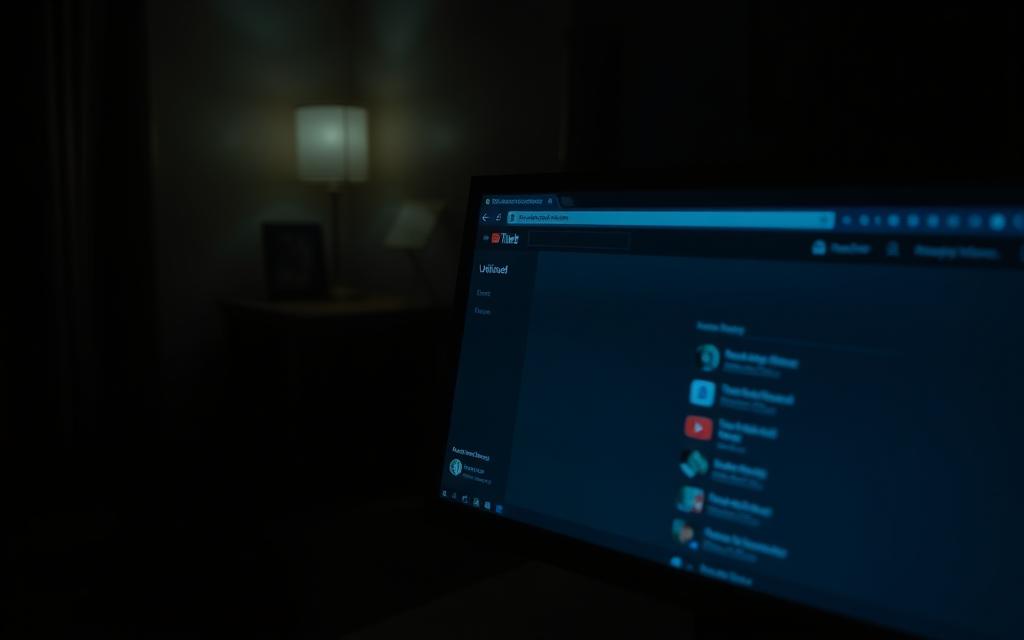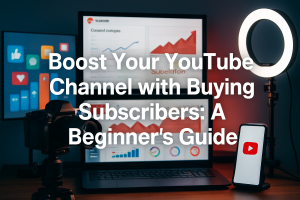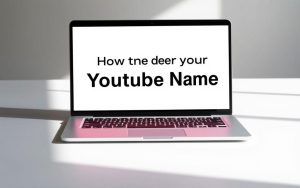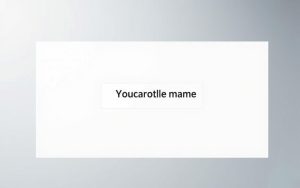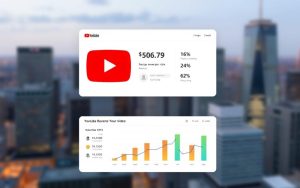Table of Contents
YouTube offers three visibility options for videos: public, unlisted, and private. The unlisted setting serves as a middle ground between fully public and completely private content. Unlike public videos, unlisted ones won’t appear in search results or on your channel.
These videos are accessible only to those with a direct link. No Google account is needed to view them, making sharing easier than with private videos. This feature is ideal for selective distribution, embedded content, or gathering controlled feedback.
Creators often use unlisted status for previewing content before official release or sharing work-in-progress versions. It provides flexibility without full public exposure.
What Does “Unlisted” Mean on YouTube?
Unlisted content operates differently from public or private uploads. Unlike public videos, these won’t appear in search results, recommendations, or your channel’s video list. Only users with the direct video link can view them.
Subscribers won’t receive notifications when you upload unlisted videos. This makes the feature ideal for controlled sharing. Anyone with the link can watch, even without a Google account.
Despite limited visibility, YouTube treats unlisted content like public videos for copyright and community guidelines. Violations may still result in strikes or removal.
| Feature | Public Videos | Unlisted Videos |
|---|---|---|
| Appears in search | Yes | No |
| Subscriber notifications | Yes | No |
| Access method | Open | Direct link only |
A common misconception is that unlisted videos are private. While they’re hidden from general view, they’re not password-protected. If the link spreads on social media, unintended audiences might see it.
Unlisted vs. Private vs. Public Videos on YouTube
YouTube provides creators with multiple privacy settings for different sharing needs. Each option—public, private, and unlisted—offers distinct levels of visibility and control. Choosing the right one depends on your goals, audience, and content type.
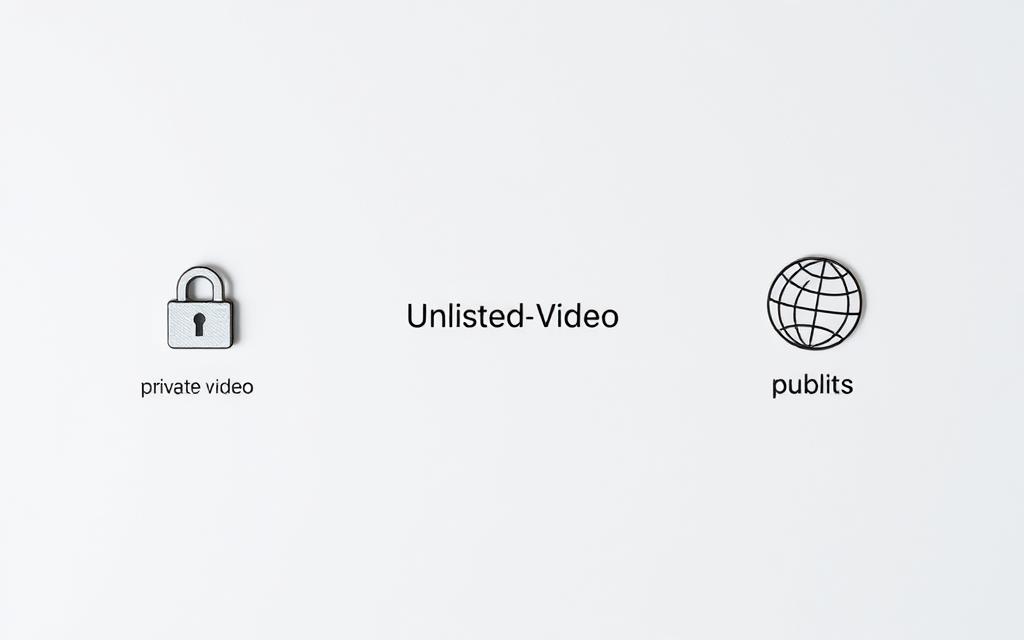
Public Videos: Default Visibility
Public is the standard setting for most uploads. These videos appear in search results, recommendations, and your channel. Subscribers receive notifications, making it ideal for growing an audience or monetizing content.
Brands often use public videos for promotions or tutorials. However, this openness means anyone can view or share them without restrictions.
Private Videos: Restricted Access
Private videos are the most secure option. Only users you invite via email can watch them, and they must sign in to a Google account. Resharing is disabled, ensuring tight control over who sees the content.
This setting suits internal training videos or personal family moments. Note the 50-user limit and lack of embedding options.
Unlisted Videos: The Middle Ground
Unlisted videos balance privacy and accessibility. They’re hidden from search and your channel but accessible via direct links. No Google account is required, making them perfect for embedding on websites or sharing drafts.
Unlike private videos, there’s no viewer limit. However, link security is crucial—anyone with the URL can watch or reshare it.
| Feature | Public | Private | Unlisted |
|---|---|---|---|
| Searchable | Yes | No | No |
| Shareable | Yes | No | Yes (via link) |
| Google account required | No | Yes | No |
| Viewer limit | None | 50 users | None |
For creators, selecting the right privacy tier ensures content reaches the intended audience securely. Public videos maximize exposure, private ones lock it down, and unlisted offers flexible sharing.
Why Use Unlisted Videos? Key Benefits
Creators leverage unlisted videos for targeted content distribution. This setting bridges privacy and accessibility, offering solutions for professionals, marketers, and educators. Below are three strategic advantages.
Exclusive Content Sharing
Unlisted videos excel in controlled environments. Webinar hosts deliver content to registered users without public exposure. Freelancers share portfolios discreetly with clients.
For marketing teams, it’s ideal for pre-launch material. Links can be revoked if shared prematurely, reducing leaks.
Website Embedding and Clean Channel Management
Embed videos on blogs or platforms without cluttering your YouTube channel. Unlisted status keeps embeds functional while hiding them from your public profile.
Rebranding creators archive old content but preserve existing links. This maintains SEO value without confusing subscribers.
Market Research and Feedback
Gather insights from focus groups using unlisted links. HR departments share training files securely. Feedback loops are streamlined, as viewers don’t need accounts.
Case studies show online courses use this for drip content. YouTube’s hosting outperforms self-hosting in speed and reliability.
How to Upload an Unlisted Video on YouTube
Uploading content with restricted visibility requires specific steps in YouTube Studio. Whether you’re sharing drafts or exclusive material, the process is straightforward. Follow these guidelines to ensure seamless distribution.
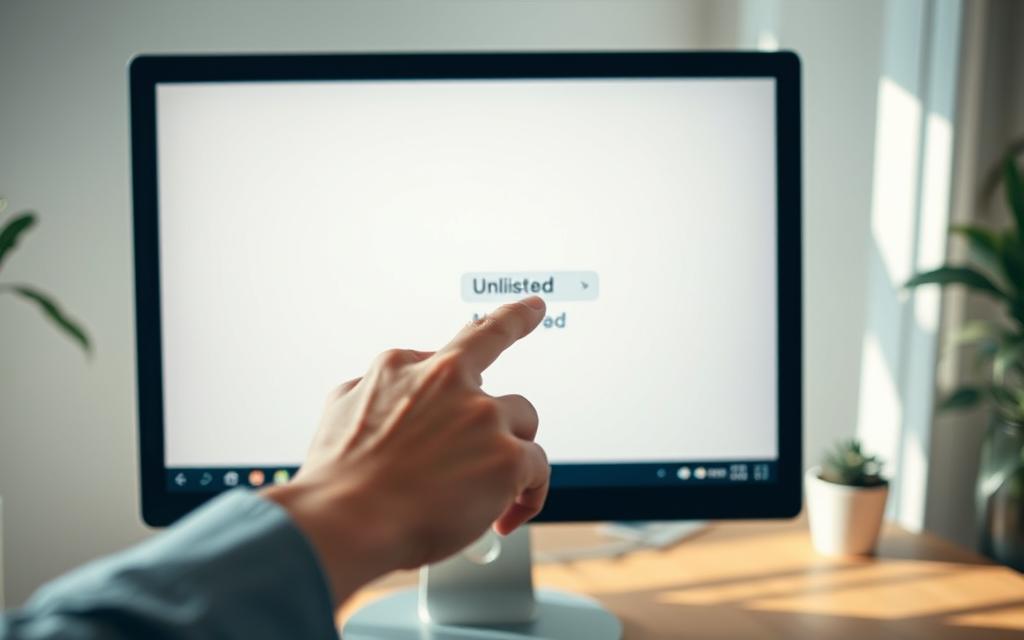
Step-by-Step Upload Process
From your google account, navigate to YouTube Studio. Click the “Create” button (desktop) or “+” icon (mobile) to access the uploader page. Drag files or browse folders to select your video.
While uploading, edit metadata like titles and descriptions. Use keywords naturally to improve discoverability if you later switch to public. Avoid vague phrases like “Untitled” to maintain professionalism.
Privacy Settings Configuration
Locate the dropdown menu under “Visibility” on the upload page. Choose “Unlisted” from the options. Confirm your selection before finalizing. Note: Scheduled uploads can also be set as unlisted.
| Step | Desktop | Mobile |
|---|---|---|
| Access Uploader | Studio > Create | + Icon |
| Privacy Menu | Below Description | Advanced Settings |
| Save Changes | Publish Button | Checkmark Icon |
Post-Upload Adjustments
To change a public video to unlisted, open YouTube Studio. Select “Content” and click the edit icon next to your video. Update the settings and save. Links remain active unless deleted.
For troubleshooting, check file formats (MP4, MOV) and internet stability. Version control is critical—reuploading generates new URLs. Test cross-device compatibility before sharing.
How to Share an Unlisted YouTube Video
Distributing restricted-access videos requires smart sharing tactics. Unlike public content, these rely entirely on link management for viewer access. Follow these professional methods to maintain control while reaching target audiences.
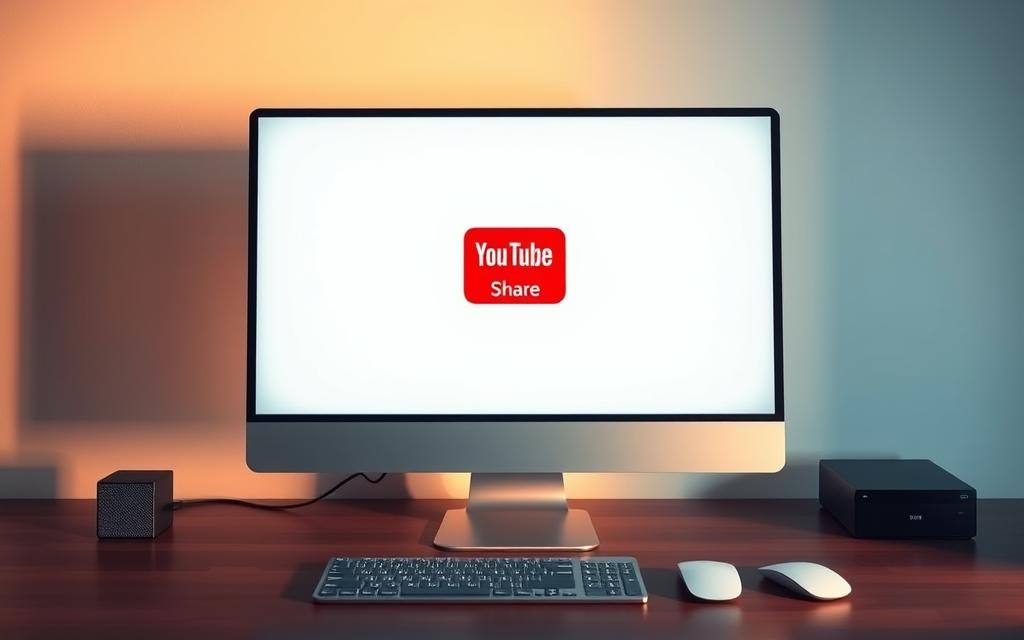
Direct Link Distribution
Copy the URL from your browser’s address bar after uploading. For sensitive material, consider password-protected sharing platforms like Vimeo Pro as an extra layer. Always test links before sending to confirm accessibility.
Corporate teams often use this for earnings reports. A 2023 survey showed 68% of financial firms prefer unlisted sharing for preliminary results.
Email Best Practices
When mailing links:
- Use BCC for group sends
- Add expiration dates in body text
- Include view-count expectations
Marketing tools like Mailchimp track click-through rates. This helps gauge engagement without public metrics.
| Method | Security Level | Analytics |
|---|---|---|
| Direct link | Medium | Basic YouTube stats |
| Email campaign | High | Open/click tracking |
| URL shortener | Low | Geographic data |
Social Media Precautions
Avoid posting unlisted links on public platforms. If necessary, use stories or ephemeral posts that disappear. Twitter threads increase resharing risks—consider DMs instead.
For educational content, LMS integration beats social sharing. Platforms like Canvas or Blackboard keep videos secure while allowing student access.
Remember: Anyone with the link can view your content. Treat it like a digital key to your private media vault.
Limitations and Risks of Unlisted Videos
While unlisted videos offer selective sharing, they come with inherent risks. These hidden uploads bypass public scrutiny but face unique threats, from link leaks to copyright strikes. Understanding these pitfalls helps creators safeguard content.
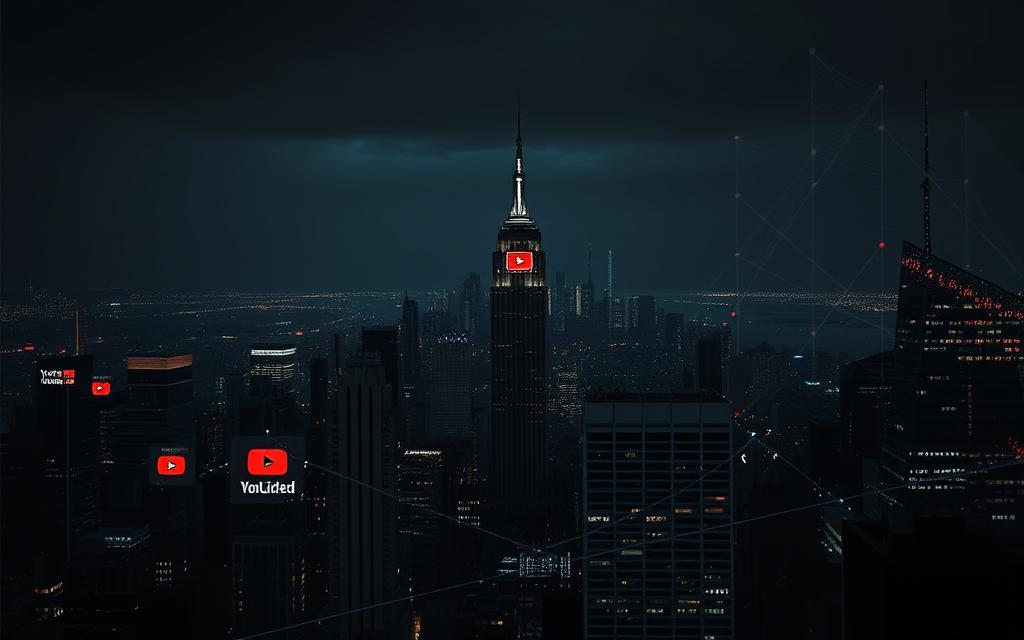
Link Sharing and Security Vulnerabilities
Unlisted videos rely entirely on link access. Unlike private uploads, anyone with the URL can view or reshare them. Scraping tools can harvest these links from unprotected websites or forums.
Key security gaps include:
- No expiration: Links remain active unless manually deleted
- Enterprise risks: Sensitive material leaked via shared links
- Zero privacy barriers beyond the URL
For example, a 2022 tech conference accidentally exposed keynote speeches by embedding unlisted links on their public site. This highlights the need for additional security layers.
Copyright and Moderation Challenges
YouTube applies the same rules to unlisted content as public videos. Content ID claims and DMCA takedowns still trigger penalties. Strikes may occur even if only a handful of users viewed the video.
| Risk | Impact |
|---|---|
| Music copyright | Automatic demonetization |
| Community guideline breaches | Channel strikes |
| Re-upload restrictions | 48-hour delays for flagged content |
To mitigate risks, avoid unlicensed assets and monitor settings regularly. Back up critical files externally in case of sudden removals.
Conclusion
Choosing the right video privacy setting depends on your goals. Public works for broad reach, private for strict control, and unlisted offers flexible sharing. Each serves unique needs in content distribution.
For professionals, unlisted links simplify secure media sharing. Marketers preview campaigns, educators distribute course materials, and teams collaborate privately. Always review your channel strategy before uploading.
Remember: Unlisted doesn’t mean invisible. Monitor link access and update settings as needed. Stay informed about platform changes to maximize your information security.
Ready to optimize your sharing approach? Test unlisted features today for controlled, efficient distribution.
FAQ
How is an unlisted video different from a private one?
Unlisted videos don’t appear in search results or your channel but can be viewed by anyone with the link. Private videos restrict access only to specific users you choose.
Can unlisted videos become public accidentally?
No, they remain unlisted unless manually changed to public. However, if someone shares the link widely, it may feel “public” even without search visibility.
Are unlisted videos safe from copyright claims?
No. YouTube’s Content ID system scans all uploads, including unlisted ones. Copyrighted material can still trigger claims or strikes.
How do I share an unlisted video with my team?
Copy the link from your YouTube Studio and send it directly. No need to add users individually, unlike private videos.
Can I embed unlisted videos on my website?
Yes. They’ll play normally on external sites but won’t appear in YouTube’s search or recommendations.
Do unlisted videos affect my channel’s performance metrics?
Views and engagement count toward analytics, but since they’re not discoverable, they won’t boost your channel’s growth like public content.
What happens if I delete an unlisted video’s link?
The video stays on YouTube unless removed. Old links will stop working if you delete the file entirely.


